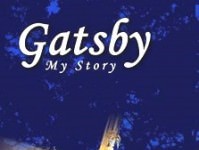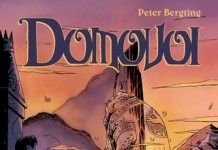![]() While there’s plenty to complain about regarding the Big Six (now Five) publishers, their mis-steps are nevertheless leaving lots of room for indie authors and publishers to learn from their mistakes and do things better.
While there’s plenty to complain about regarding the Big Six (now Five) publishers, their mis-steps are nevertheless leaving lots of room for indie authors and publishers to learn from their mistakes and do things better.
I’ve got a new indie publisher located near me, and I recently had the opportunity to interview the co-owners and the marketing director. I was able to pick their brains a bit on the challenges of starting a new publishing house, and about how working with an indie is different from working with a traditional. Plus some marketing ideas!
We’ll start with Austin Camacho, thriller and mystery writer, and editorial director of Intrigue Publishing. (Check back later today for our conversation with Denise Camacho, Intrigue Publishing’s president.)
* * *
 TeleRead: You’ve worked with a small press, you’ve self-published, and you’re now part-owner of your own publishing company. That’s quite a journey. What have you learned that could help other aspiring or new authors?
TeleRead: You’ve worked with a small press, you’ve self-published, and you’re now part-owner of your own publishing company. That’s quite a journey. What have you learned that could help other aspiring or new authors?
Austin Camacho: Perhaps the biggest lesson I’ve learned is that no matter which publishing path an author chooses, they need to learn as much about the publishing business as possible. Whether you do it yourself or let someone else handle all the publishing chores, you should know what’s involved in the process so you can get the most out of your book and/or your publisher.
I’ve also learned that once you’ve written the best book you can, [and] edited and rewritten and polished that gem to a bright shine, you have to believe in your book, no matter what anyone says about it. Keep learning, and keep pushing your book toward publication.
TeleRead: Is there a difference between presenting your book to an indie publisher as opposed to a traditional publisher?
Camacho: Yes. When you submit your book to a major publisher, your submission package needs to convince them that you have written a potential blockbuster. That means your letter and other materials need to show where your book will sit in the marketplace and what makes it sufficiently unique, yet familiar to a particular group of readers.
Those things are important when submitting to a small press too, but you, the author, are also important. The small press wants to know that you have future great work in you; they want to know you’re a person who will handle editing well and will work to promote your book. They also want to know if you have a platform, either a pre-existing following or a natural target audience.
TeleRead: What’s been your most successful marketing effort?
Camacho: That’s a difficult question because all marketing actions work in concert, and I’m never using just one marketing tool. That said, I think the single action that showed the greatest initial impact was an e-book giveaway of the first book in my mystery series.
TeleRead: When did you first release your books as e-books, and what’s been your experience with that format?
Camacho: I began publishing as e-books in 2008 and I’ve been surprised with the success I’ve had. Over time (and with the loss of so many brick-and-mortar bookstores), e-book sales have steadily grown as paper book sales have stagnated. The process is different, of course. With paper books you market to booksellers. With e-books you market directly to readers.
TeleRead: What’s been your most satisfying experience as an author?
Camacho: As much as I love writing, and teaching, I think my most satisfying experience may have been a speaking engagement presenting to the assembled library staff members of Anne Arundel County. I loved the chance to tell librarians about the state of writing and publishing from the other side. Of course, I think I have more satisfying experiences in my future.
TeleRead: I understand you’re organizing a reader/writer conference. Tell us about that decision, and what you hope attendees will get out of it.
Camacho: When I attended the Love is Murder Mystery Conference six years ago, it was my first experience at a gathering that welcomed readers as well as writers. Since then I’ve enjoyed Bouchercon, Malice Domestic, Magna cum Murder, ThrillerFest and others, but LIM is still different because it attracts a broader spectrum of fans and authors. When we formed Intrigue Publishing we wanted to launch a similar conference closer to home, and said, Well, why not?
Actually, there was plenty of “Why not?” It would be a lot of work. It would cost a lot of money. There was no guarantee that anyone would come.
But we knew all the benefits of writers networking with each other, of fans getting to know writers better, and of getting readers to try new genres. Writers will learn from the panels, and readers usually find the same information interesting. And readers do like to hear from the well-known writers (like Jeffrey Deaver, Christopher Golden, John Gilstrap and Trice Hickman). It’s going to be everything those other conferences are, only the only one of its kind in the Mid-Atlantic area.
TeleRead: Thanks, Austin.
In the next article in this series, we’ll hear from Denise Camacho, President of Intrigue Publishing.


































Dear Camchos: Was thrilled to see you are going into the publishing business and have already stuck you under friends on my prayer list-that’s people who have touched our lives or we’ve touched theirs and been able to help or comfort each other in some way (we being me and my family – including four footed and winged ones.)
I tried to think of what would appeal to me if I were dipping a toe into the publishing waters and am gathering some information which may interest you. I’m sending some recent sales (and dates) for ebooks and audios along with contacts for you to talk with the two in print publishers my books were published with before I felt I was too old to wait a couple of years to get a book in print. We parted friendly and I still have lots of friends in both places.
I would really like to have my later books in print for my readers who want a book in hand since there are several more of them finished and available now as ebooks and audios now.
If you decide to publish three of more of my books, I would like to have a contract for either trade paperbacks or hard covers reserving all others. This is not chiseled in stone and though I would rather keep all others, I would consider taking the three you choose off the ebook outlets so you can have the ebook rights, reserving all other as above. I have a couple of mass market books with Harlequin and their contacts run for five years. I don’t know since I haven’t asked if it would be possible to get rights back for those or how, but if not, there are plenty more to choose from. To get a list of all my works and the formats in which they are available, please go to Amazon, click on books, type in Jackie Griffey and you will get a whole list of them. They have also for some reason added Ken Griffey, the baseball player, to my information ????!! I am not related to him or his family and I’m sure he’s never heard of me (I’m not even a sports fan – LOL) There are also more Jackie Griffey’s on Facebook and so many Jack Griffeys, they seem to be coming out of cyber space in droves. I don’t know them either, I’m the old one from Arkansas and am planning on writing as long as I can see the monitor. I’m 86 but if the IRS knew how good I feel I’m sure they would put a tax on it and I’ve got two Works in Progress at the moment. Thanks for reading this. I’m working on getting helpful information for you and look forward to hearing more about your progress.